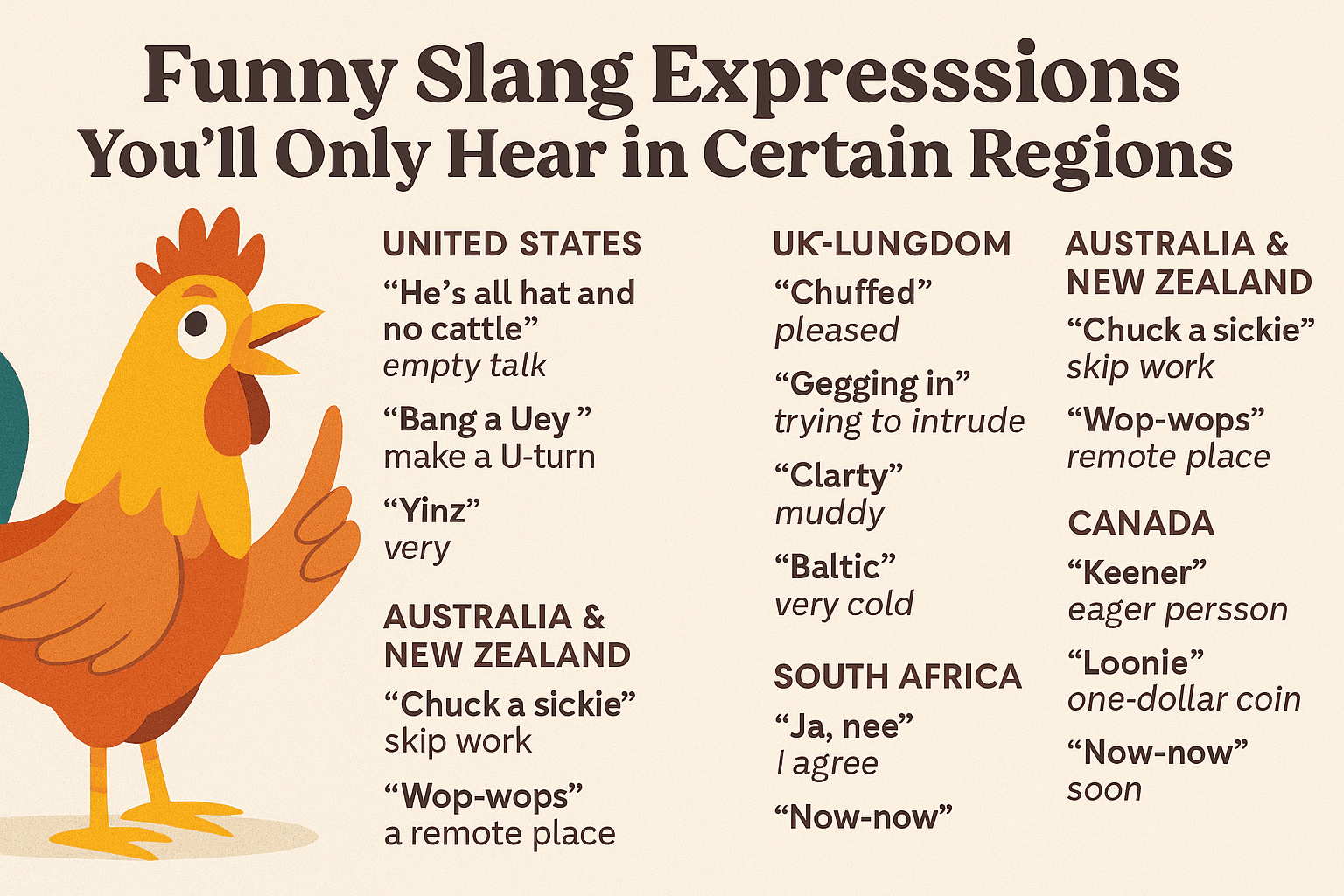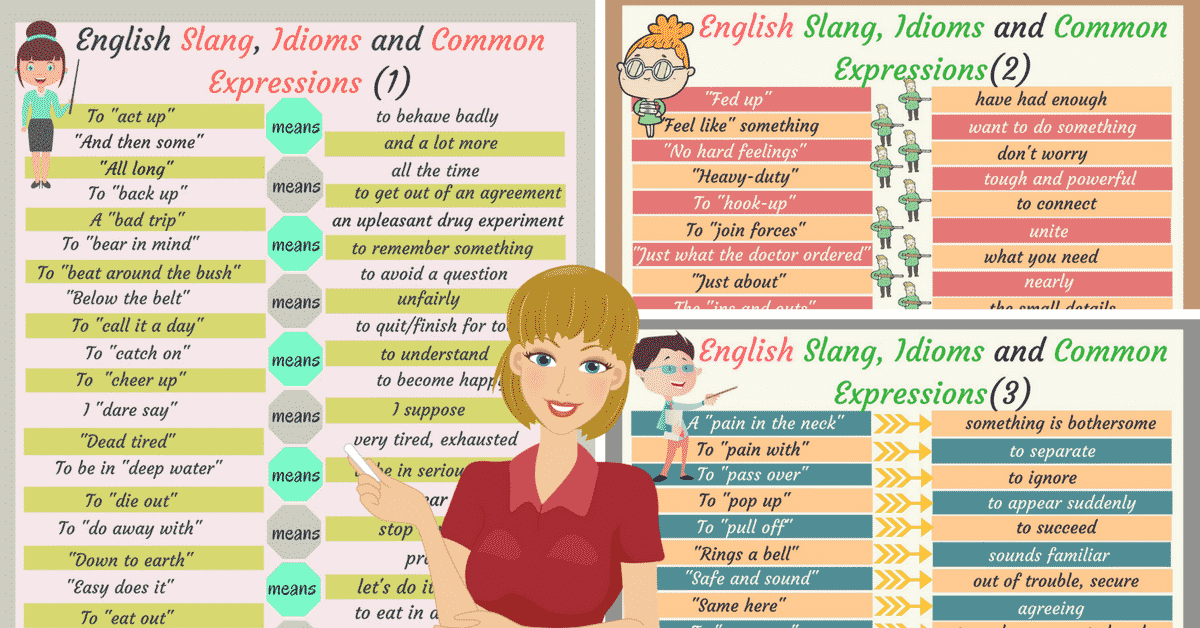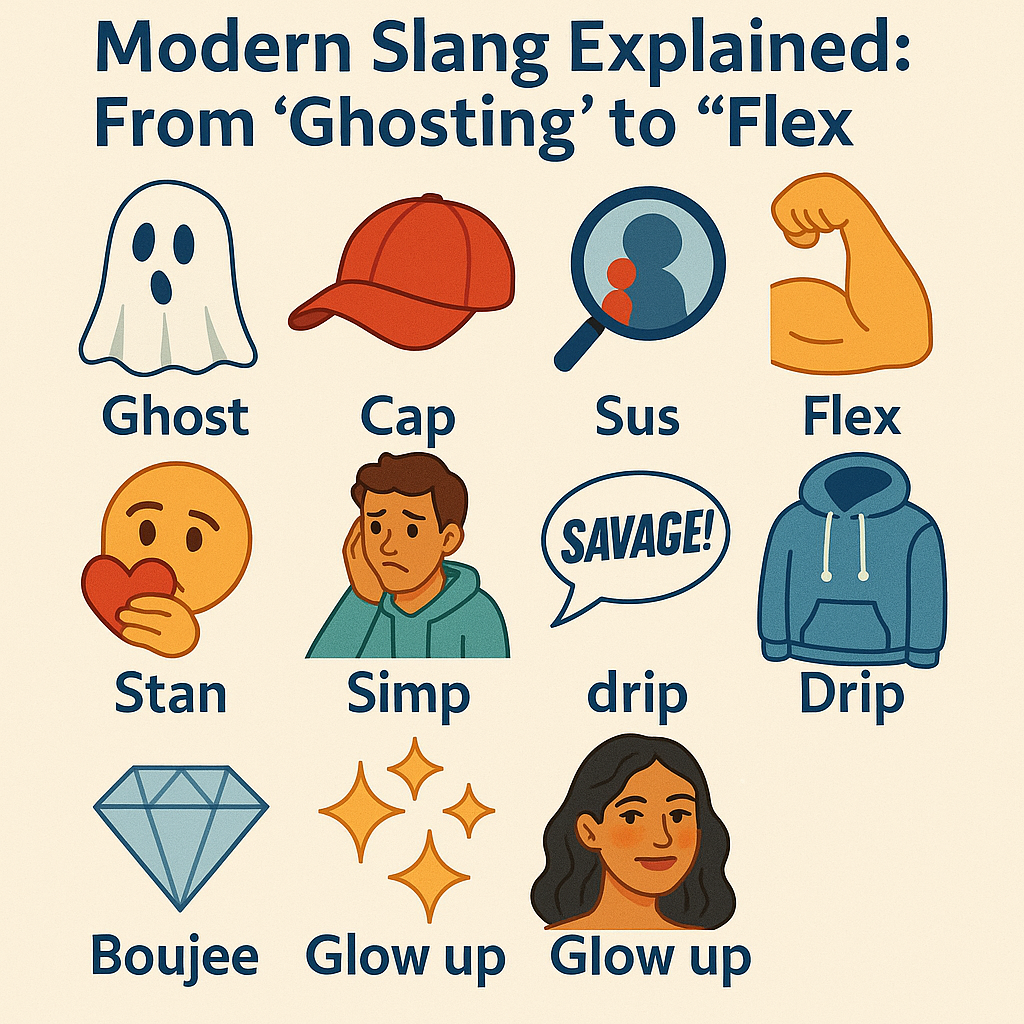Slang isn’t just about age or trends—it’s about location. Across the English-speaking world, different regions have developed their own unique, quirky, and sometimes downright hilarious slang expressions. From small towns in the American South to the streets of Glasgow, slang is often shaped by local culture, history, and humor.
In this article, we’ll explore some of the funniest and most region-specific slang phrases in English—from the U.S., the UK, Australia, and beyond. These are expressions you’ll rarely hear outside their home turf, but once you know them, you’ll wish they were used everywhere.
Why Regional Slang Exists
Language naturally evolves based on geography. Local slang:
- Reflects local culture, weather, and social behavior
- Builds a sense of community or identity
- Keeps outsiders (sometimes deliberately) in the dark
- Is often passed down through generations
Even within the same country, one region’s slang can be totally foreign to someone just a few hours away.
🔗 For an overview, check out Dictionary.com’s Guide to Regional Slang
United States: Slang That Depends on Your State
1. “He’s all hat and no cattle” – Texas
Meaning: He talks big but doesn’t deliver.
A perfect mix of cowboy culture and sarcasm.
2. “Bang a Uey” – New England
Meaning: Make a U-turn.
Pronounced like “yoo-ee” and almost never used outside the Northeast.
3. “Yinz” – Pittsburgh
Meaning: You (plural).
It’s Pittsburgh’s answer to “y’all.” You’ll hear “Yinz going downtown?”
4. “Hella” – Northern California
Meaning: Very or a lot.
“That’s hella cool.” It’s so iconic, even The New York Times covered it.
United Kingdom: The Land of Local Slang
5. “Chuffed” – England
Meaning: Proud or pleased.
“I’m chuffed with how that turned out.” Totally positive—despite how it sounds.
6. “Gegging in” – Liverpool
Meaning: Trying to get involved in something you’re not part of.
“He keeps gegging in on our conversation.”
7. “Clarty” – North East England
Meaning: Dirty, messy, or muddy.
“Your shoes are clarty—take them off!”
8. “Baltic” – Scotland
Meaning: Extremely cold.
Not a reference to the region in Europe—just Glasgow slang for shivering weather.
🔗 See more British regionalisms at BBC Voices
Australia & New Zealand: Slang With a Sunny Twist
9. “Chuck a sickie” – Australia
Meaning: Call in sick when you’re not actually sick.
Used casually: “Might chuck a sickie Friday and head to the beach.”
10. “Wop-wops” – New Zealand
Meaning: The middle of nowhere.
“She lives out in the wop-wops.” Think rural, isolated, and sheep nearby.
Canada: Cold, Clever, and Very Local
11. “Keener” – Canada
Meaning: An overly eager person (especially in school).
“He’s such a keener—already did next week’s homework.”
12. “Loonie” – Canada
Meaning: One-dollar coin (named after the loon bird on it).
Useful and funny: “Got change for a loonie?”
🔗 Explore more Canadian expressions at The Canadian Encyclopedia
South Africa: Wild and Wonderful Words
13. “Ja, nee” – South African English
Meaning: Literally “yes, no,” but really means “I hear you” or “Okay.”
Used often in conversation: “Ja, nee, that’s how it is.”
14. “Now-now” – South Africa
Meaning: Not right now, but soon.
It’s an entire time concept! “I’ll call you now-now.”
Why Regional Slang Is So Fun
These phrases give us a peek into local culture, and they often have:
- Hilarious mental images
- Unexpected grammar or sound
- Endearing meanings
Plus, regional slang is usually impossible to fake—which makes it a great way to spot where someone’s really from.
Tips for Learning Regional Slang
- Travel (even virtually) – Listen for patterns and expressions.
- Watch local media – Try regional shows, YouTubers, or TikTok creators.
- Ask locals – People usually love explaining their slang.
- Use it respectfully – Don’t overdo it if you’re not from the region.
- Keep a slang diary – Write down phrases you hear and their meanings.
Final Thoughts: One Language, Many Voices
Slang is a living, breathing part of every language—and regional slang is the most colorful branch of all. It keeps language fresh, playful, and full of surprises. You might not use these phrases every day, but knowing them adds richness to your understanding of English around the world.
So whether you’re “chuffed,” “chucking a sickie,” or “in the wop-wops,” celebrate the diversity of language—and maybe, try slipping a few of these into your next conversation.
Just don’t forget to take your clarty shoes off first. 😉




